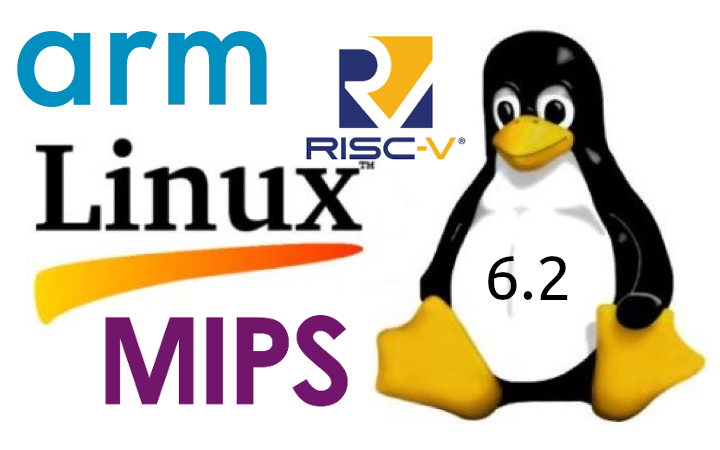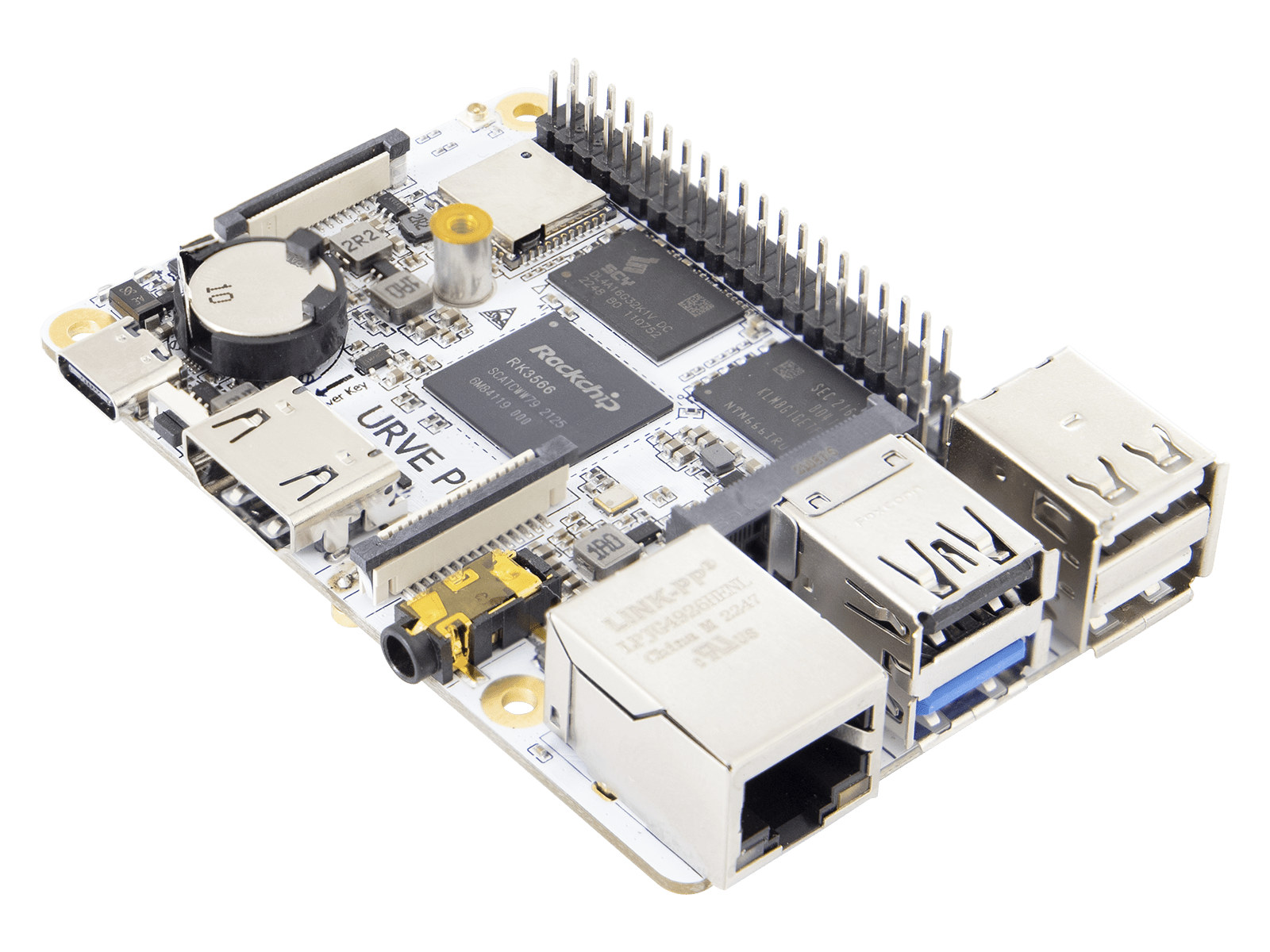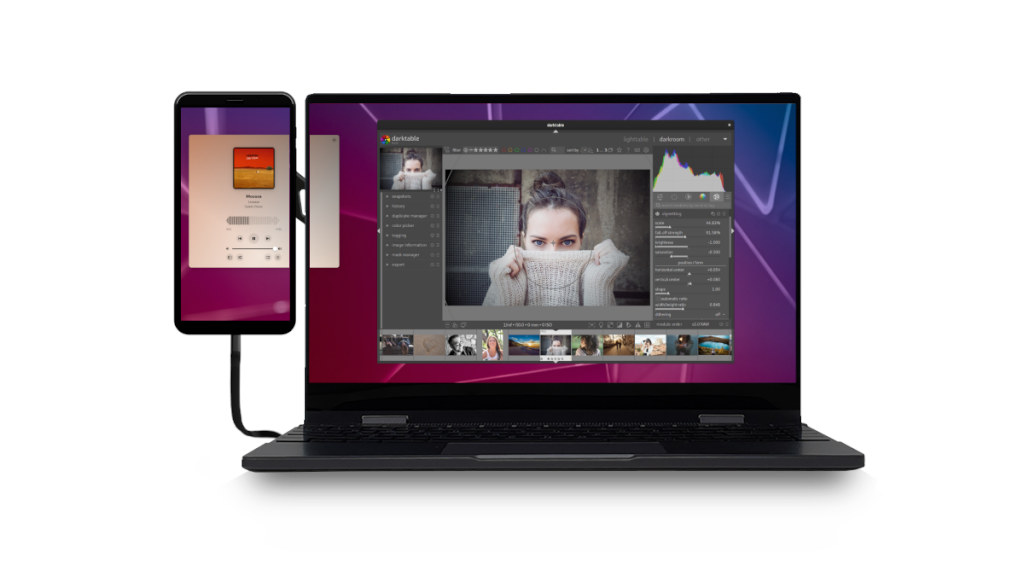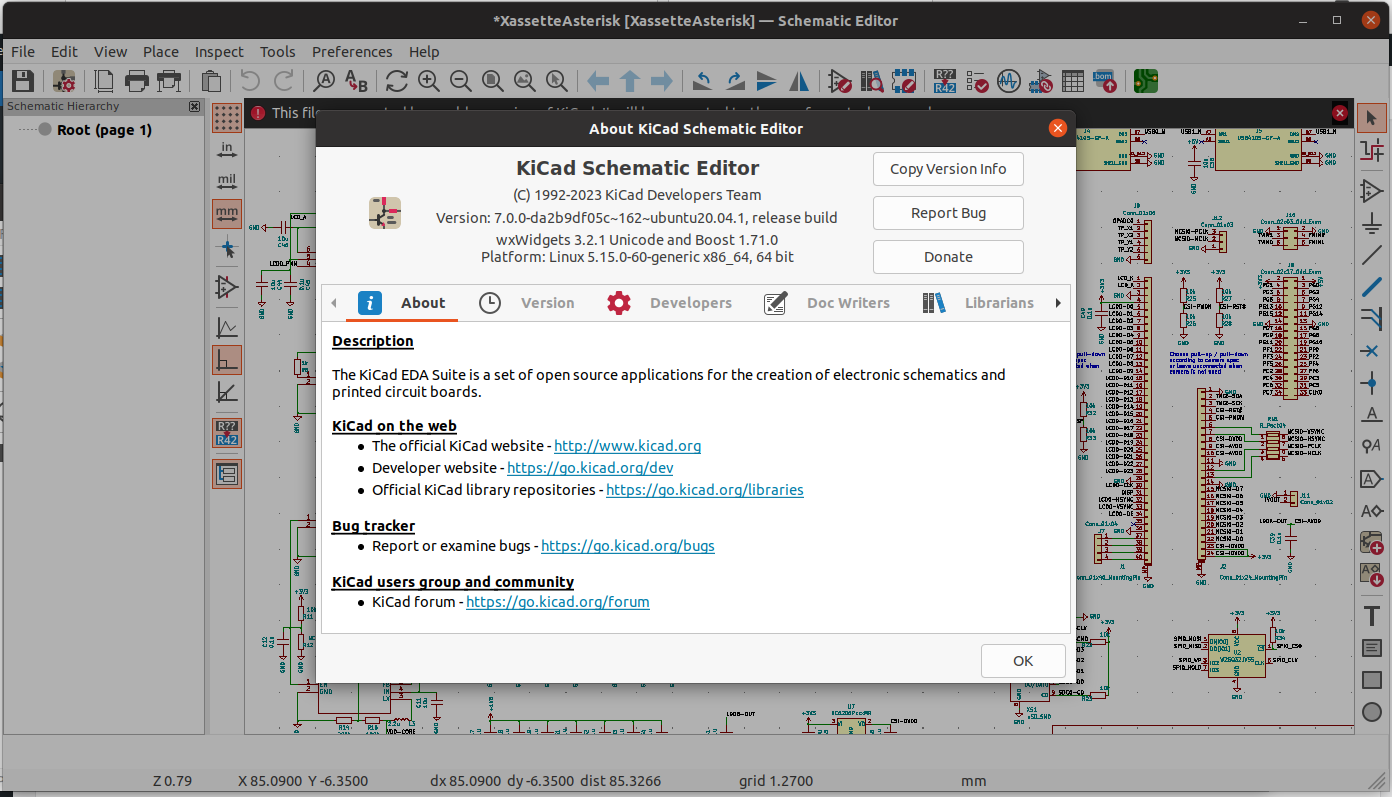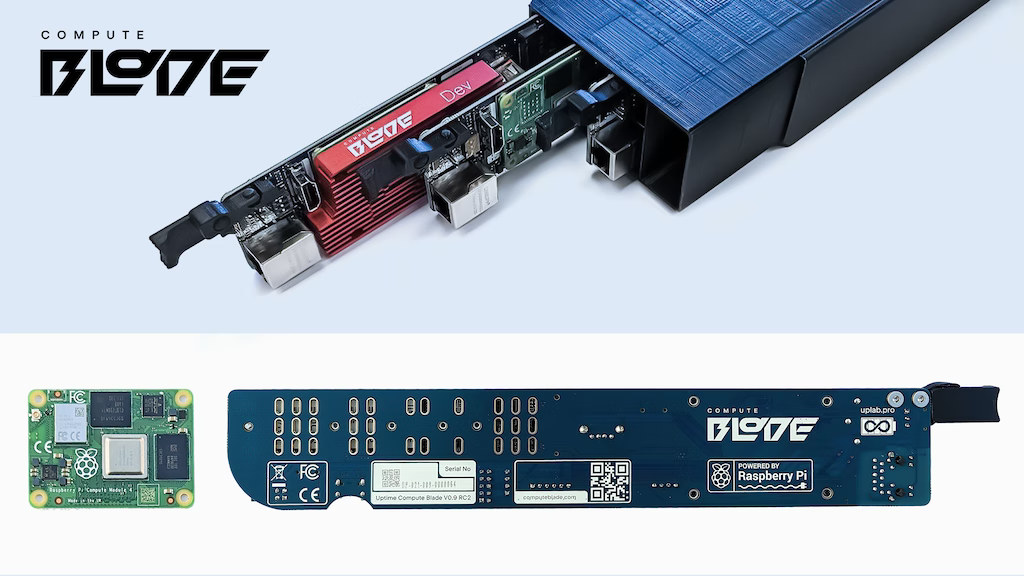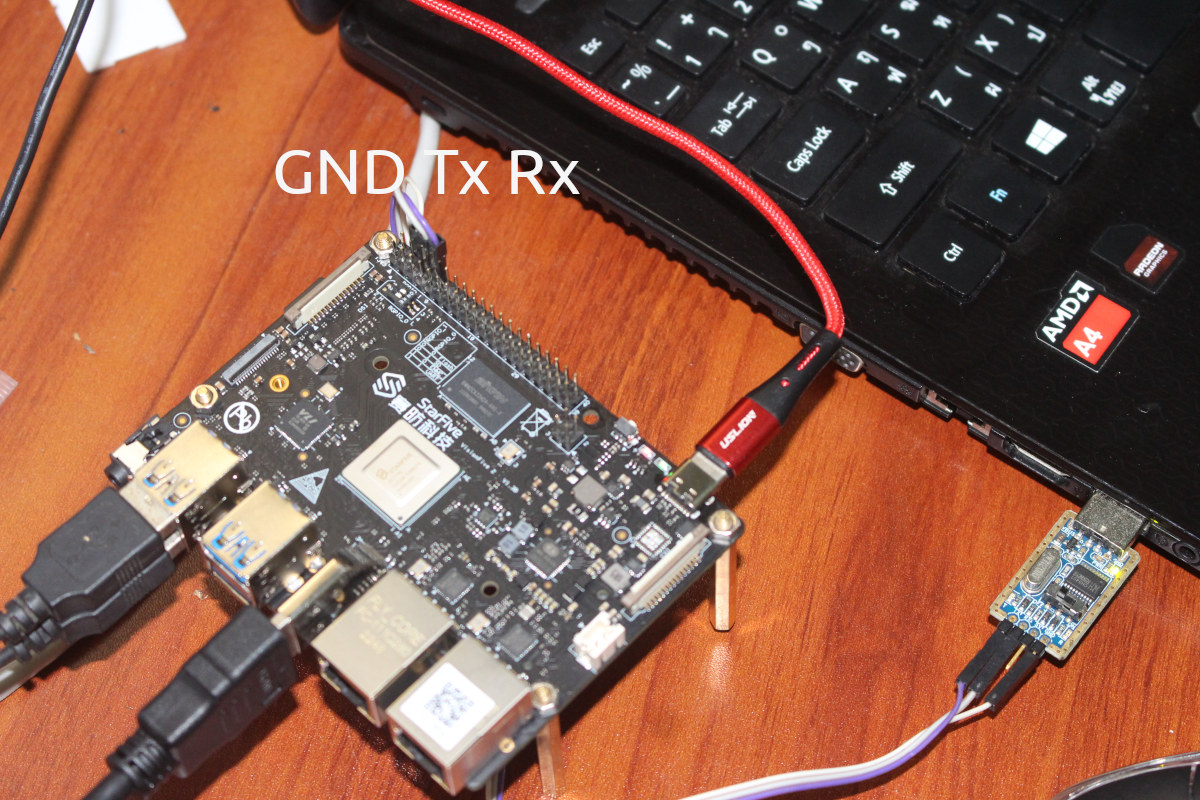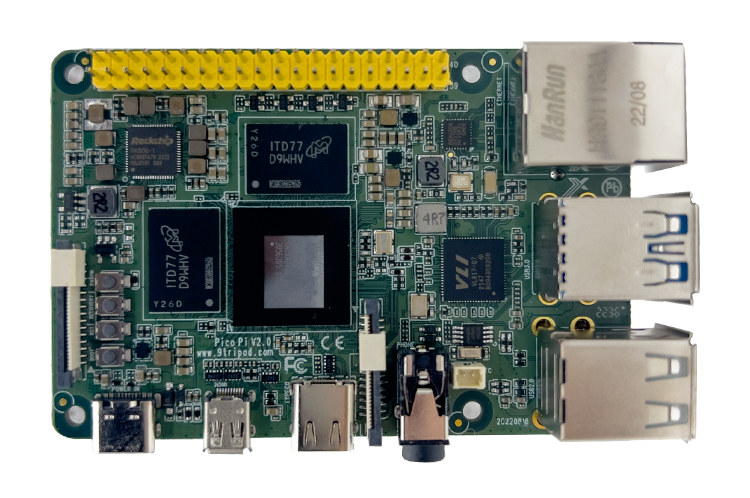The “Auspicious Machine” may look like a Blackberry phone, but it’s actually a handheld Linux PC with a built-in QWERTY keyboard and a 3.5-inch display that can be powered by a range of system-on-modules (SoM). The computer, whose name can also be translated as the “Auspicious Phone”, can be used as a Linux terminal with GPIO control, and for gaming with Linux distributions such as Batotera or RetroBat with the D-Pad and ABXY buttons found on the device. Auspicious Machine specifications: Supported SoMs Bigtreetech CB1 with Allwinner H616 quad-core Cortex-A53 processor and 1GB DDR4 Raspberry Pi CM4 with Broadcom BCM2711 quad-core Cortex-A72 processor, up to 8GB LPDDR4, up to 32GB eMMC flash Radxa CM3 with Rockchip RK3566 quad-core Cortex-A55 processor, up to 4GB LPDDR4, up to 64GB eMMC flash Banana Pi BPI-CM4 with Amlogic A311D octa-core Cortex-A73/A55 processor with 4GB LPDDR4 and 16GB eMMC flash Storage – MicroSD card socket […]
Linux 6.2 release – Main changes, Arm, RISC-V, and MIPS architectures
Linux 6.2 has just been released with Linus Torvalds making the announcement on LKML as usual: So here we are, right on (the extended) schedule, with 6.2 out. Nothing unexpected happened last week, with just a random selection of small fixes spread all over, with nothing really standing out. The shortlog is tiny and appended below, you can scroll through it if you’re bored. Wed have a couple of small things that Thorsten was tracking on the regression side, but I wasn’t going to apply any last-minute patches that weren’t actively pushed by maintainers, so they will have to show up for stable. Nothing seemed even remotely worth trying to delay things for. And this obviously means that the 6.3 merge window will open tomorrow, and I already have 30+ pull requests queued up, which I really appreciate. I like how people have started to take the whole “ready for […]
URVE Board Pi RK3566 SBC comes with RTC, eMMC flash, and M.2 SSD socket
URVE Board Pi is a single board computer (SBC) powered by a Rockchip RK3566 quad-core Cortex-A55 processor, 2GB RAM, 8GB eMMC flash, plus the same interfaces as the Raspberry Pi 3 Model B as well as an RTC with a coin-cell battery and an M.2 SSD socket. More specifically, the Rockchip RK3566 board comes with a 4Kp60 capable HDMI 2.0 port, a MIPI DSI/LVDS display interface, a MIPI CSI camera connector, Gigabit Ethernet, four USB 3.0/2.0 ports, a dual-band WiFi 5.0 and Bluetooth 4.2 wireless module, and the usual 40-pin GPIO header. URVE Board Pi specifications: SoC – Rockchip RK3566 Quad Core Cortex-A55 processor @ 1.8 GHz with Arm Mali-G52 GPU, 0.8 TOPS NPU System Memory – 2GB LPDDR4 (up to 8GB) Storage 8GB eMMC flash (up to 128GB) M.2 PCIe socket for 2242 NVMe SSD MicroSD card slot Video Output HDMI 2.0 with HDCP 1.4/2.2, up to 4Kp60 4-lane […]
Purism Lapdock kit converts the Librem 5 Linux smartphone into a laptop
Purism has just announced the Lapdock kit to turn their Librem 5 Linux smartphone into a laptop with a 13.3-inch touchscreen display thanks to the NexDock 360 laptop dock. I was a big believer in mobile desktop convergence around 10 years ago, expected to be soon able to use my phone as a computer or laptop with a dock, and it looked like it might have become a reality when Canonical launched the Ubuntu Edge smartphone crowdfunding campaign in 2013. But it turns out demand was not sufficient, and Canonical eventually ended their convergence efforts focusing on profitable IoT and cloud segments instead. But that does not mean there isn’t a niche market and Purism’s Lapdock kit addresses it to some extent. The Lapdock kit is comprised of three parts namely the NexDock 360 laptop dock, a magnetic mount to attach the Librem 5 to the side of the NexDock […]
KiCad 7.0.0 release – Custom fonts, text boxes, SpaceMouse, crash reporting, and much more
KiCad 7.0.0 open-source EDA software has just been released with a range of new features from custom fonts to 3Dconnexion SpaceMouse integration to opt-in Sentry crash reporting, and many more changes. It took over three years between KiCad 5.0.0 and KiCad 6.0.0 announcements, but only a little over a year for the release of KiCad 7.0.0. Did KiCad developers acquire superhuman abilities or did AI get involved in the development somehow? Most probably not, and instead they change the release schedule to a yearly one, so we should get annual releases of the open-source EDA suite going forward, with KiCad 8.0.0 to be released in Q1 2024. Some notable changes to KiCad 7.0 include: Custom Fonts support is now available in the schematic, PCB, and worksheet editors to allow the use of any system font. Text box support was added in both the schematic and PCB editors. 3Dconnexion SpaceMouse support […]
Compute Blade – A Rack-mountable PoE-powered Raspberry Pi CM4 carrier board with an NVMe SSD (Crowdfunding)
Uptime Lab Compute Blade is yet another Raspberry Pi CM4 carrier board, but it’s kind of unique with its long design designed to be mounted in racks and the board features an M.2 socket for an NVMe SSD plus an Ethernet port with PoE+ support. The board is designed for high-density, low-power consumption, plug-and-play blade servers for home and data-center use and users can build Home labs, edge servers with lower latency than cloud services, and CI/CD systems (build farms) for testing and software development. Compute Blade specifications: SoM – Raspberry Pi CM4 support and potentially alternative system-on-modules such as Radxa CM3 and Pine64 SoQuartz Storage NVMe SSD socket up to 22110 (2230, 2242, 2260, 2280 also supported) Optional MicroSD card slot Video Output – Optional HDMI port up to 4Kp60 Networking – Gigabit Ethernet RJ45 port with PoE+ USB USB Type-C port to flash the bootloader, eMMC/SD card, and […]
Hands-on experience with StarFive VisionFive 2 RISC-V SBC using Debian 12
StarFive sent me one of their VisionFive 2 RISC-V SBC for evaluation and review. I got the model with dual Gigabit Ethernet and 8GB RAM, and I’ll report my experience with the Debian 12 “bookworm” image. But note that won’t exactly be a review since the board is unreviewable at this time. It’s really for early adopters and there are many issues to solve, and in this post, I’ll report what works and what doesn’t, and some of the challenges I encountered just to install the OS… VisionFive 2 unboxing The board comes in a package that reads “Embrace change, embrace the future”. The bottom side has some useful links and QR codes, and what you’ll want is the GitHub repository with the source code and instructions to build the image from source (Note: Ubuntu 16.04, 18.04, or 20.04 x86_64 recommended), as well as the RVspace forum section for the […]
9Tripod Pico Pi V2.0 SBC features Rockchip RK3588S SoC in Raspberry Pi 4 form factor
9Tripod Pico Pi V2.0 is the third Rockchip RK3588S SBC offering a powerful alternative to Raspberry Pi 4 while keeping the same form factor. It follows the Cool Pi 4 and Radxa ROCK5 Model A single board computers introduced in the last couple of months. The Pico Pi SBC, not to be confused with the Raspberry Pi Pico :), comes with 1GB to 32GB RAM, 4GB to 128GB eMMC flash, and pretty much the same port layout as the Raspberry Pi 4, except for one of the micro HDMI ports being replaced by a USB Type-C port with support for DisplayPort. 9Tripod Pico Pi V2.0 specifications: SoC – Rockchip RK3588S CPU – Octa-core processor with 4x Cortex-A76 cores @ up to 2.2-2.4 GHz, 4x Cortex-A55 cores @ up to 1.8 GHz GPU – Arm Mali-G610 GPU with OpenGL ES 3.2, OpenCL 2.2, and Vulkan 1.2 support VPU – 8Kp60 video […]



